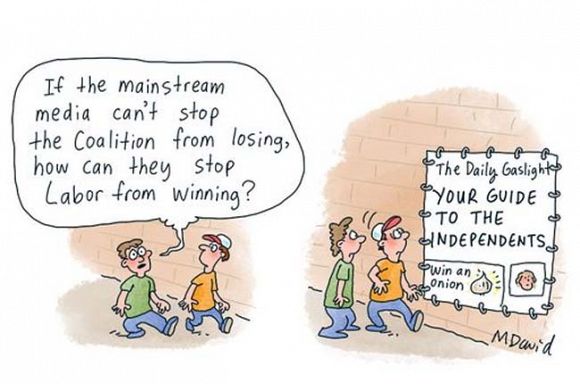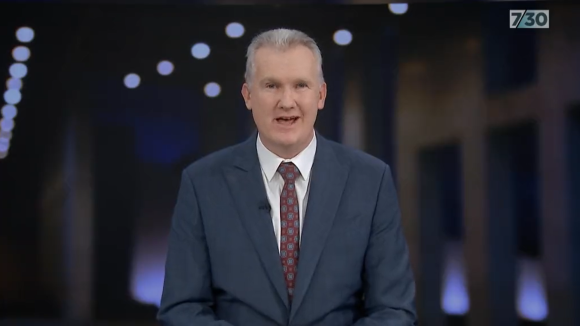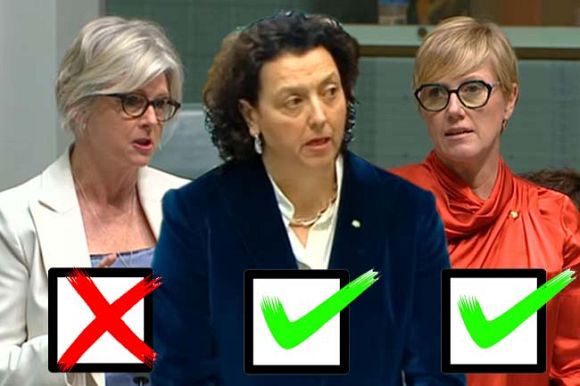Teal Independents have added amendments to reduce the impact of Labor's planned industrial relations law, potentially jeopardising its intent to boost wages, writes Dr Lee Duffield.
DEBATE THAT broke out in Federal Parliament on 10 November over a new industrial relations law had the Independent politicians under pressure — and it showed.
The so-called "Teal" group hastened to add some 35 pages of amendments to the comprehensive 'Fair Work Amendment (Secure Jobs, Better Pay) Bill' (also known as the Industrial Relations Bill) already 240 pages thick, which the Labor Government says it wants to pass before December.
As is easily observed, one curious thing that conservative voters overwhelmingly share is they hate unions and will certainly punish MPs who let this Labor move go by unchallenged.
What about the unions?!
It is curious to find such a reaction, where those voters might instead see unions as enacting a civic freedom for everybody — the freedom of association. They might see that, morally speaking, the unions are a form of people standing up for themselves and in business terms, they can help simplify and ease decisions through representation of groups and selling agreements to their members.
It is curious, also, because the anti-union animus is shared by many who do not themselves employ labour.
A thesis is that if you see yourself as high status – a “have” – you will identify with bosses, sympathise with bosses’ prerogatives and, for the sake of your own self-image, revile organisations that marshal the interests of “have-nots”.
Whichever way it works, the Teal group almost all entered the fray with ideas for reducing the impact of the planned legislation — scant interest in the other direction to actually stanchion or accentuate the Bill’s intention to facilitate wage rises.
Blue Ribbon voters
It was understandable, as Independents must be hyper-sensitive to demands from their electorates and these electorates are former blue-ribbon Liberal Party territory. The pressure on the crossbench to delineate themselves from Labor on this core issue of politics – sharing-out money between “haves” and “have-nots” – must be harrowing. It is a crisis for the seven Teals – crisis meaning risk and opportunity – so it was time for them to speak up.
Make no mistake, these are business and professional women accustomed to winning, not amateurs, as seen with the crowd-funding for their 2022 campaign, reaping a swift $7 million. Their movement is a transference into politics of “corporate feminism” where “appetite for risk” is a standard at seminars.
Characteristically, members of this group get the messages over well, enjoying a “good run” in news media. Fellow back-benchers from the Government and Opposition parties must chafe at their own relative neglect where their front-bench leadership needs to take up any available media attention.
Other Independents in the box seat
Others on the crossbench also have been under the gun and reacting with plans: Dai Le in the House of Representatives (who obtained a change to the Bill to favour cultural diversity) and Jacqui Lambie in the Senate (perhaps retaining some feelings against unions from her "Palmer Party" days – sick of ‘em, she says). Senator David Pocock, after the House debate, was trapped in the spotlight, his single vote strategic to passing or destroying the whole thing.
Even before the Industrial Relations Bill came up, the crossbench had begun demonstrating a strong aptitude for playing to the local constituents.
Dai Le, the only cross-bencher to capture a Labor seat – a former Liberal Party candidate and Independent municipal councillor in Western Sydney – teamed up with Liberal leader Peter Dutton to condemn the return of the “Islamic State” (IS) families from Kurdistan.
For the television news, she provided members of “her” refugee community from the Middle East, who attested they were unnerved by the four young women (former teenage runaways who said they’d been duped by IS) and presumably their 13 little “timebombs” — children born to the terrorists. The awkward background is the standing rule that Australian citizens have to be allowed into the country — complicated by recent laws from the last Coalition Government banning actual terrorists.
One other on-the-ball Independent watching the local electorate, Teal Allegra Spender, whose seat of Wentworth has a substantial bloc of Jewish voters, criticised Labor’s decision to drop the Morrison Government’s recognition of Jerusalem as the capital of Israel — acting in concert with then U.S. President Donald Trump.
One of a prominent Liberal Party family and the top earner in this year’s crowd-funding campaign, Spender was last month lime-lighted as a director of a company that escaped double taxing on a $280 million investment — that painted her as a bit rich, in news media, until the company’s tax situation was cleared up.
The arguments over bargaining
The Fair Work Bill has stirred up opposition on key points especially over bargaining, with the Bill providing a shift from mostly enterprise-bargaining towards more multi-enterprise deals — business groups want changes so they can just opt in to those, instead of them being initiated by unions or themselves.
They have also demanded and got the exclusion of certain industries, such as commercial building, from such deals and they want “small business” also exempted, where a business should actually be medium, with up to 200 employees. Teals talking about mum-and-dad businesses in their suburbs, joined the bidding, in their case multiplying the small-business number floated by the Government – 15 employees – by ten.
A feature of the arguments in Parliament has been a fairly fundamental difference in understanding: Government speakers perceived two parties to agreements, being the employers and the employees, as embodied and represented by their unions. Liberals, business groups and certain Teals saw three parties: businesses, their employees and unions as an “outside” and even “intrusive” third party.
It is a cultural divide and though the Fair Work changes began with round-tables and broad agreement, the success of those changes, intended as they are to boost wages, might be jeopardised now.
Footnote one
Liberal front-bencher Dan Tehan says small businesses will get a shock to “see unions walking in the front door”.
How would that go?
A discussion nearly 50 years ago with an old-style businessman showed how “multi-employer agreements” – probably a state-wide industrial award – could actually keep things simple and effective and deliver justice.
Operating chemist shops in the regions, with 21 on the payroll, he paid what the award stipulated. The union man would come around now and then and they would check what it said. He was not disempowered, keeping employers’ prerogatives like hire and fire, provision of bonuses and breaking with a practice that some of his competitors followed, of sacking female workers when they came of age and became “seniors” entitled to higher pay. This seemed a credible account of how it was — coming from one’s father.
Footnote two
Consider the way the wind is blowing and watch to see which Independents might begin drifting back to the Liberals.
The election climate in May 2022, with the Liberals on the ropes and Scott Morrison as Prime Minister, was ideal for “liberal” Liberals to grab seats off endorsed candidates, pursuing their lines on climate change, anti-corruption or gender equality. But if the electoral climate should begin to sour and as difficult issues arise for Teals in conservative electorates, such as the fight over industrial relations, pressures will build.
Game on!
Lastly, just for a game, please name the most-likely first cross-bencher to join the Coalition by the end of 2025. Post entries in the comments section attached to this article. Up to the first five correct nominations will share the prize of $100. If none of those members makes the move, this writer's $100 will be donated to the Teals’ crowd-sourcing fund.
Among his vast journalistic experience, Dr Lee Duffield has served as ABC's European correspondent. He is also an esteemed academic.
Related Articles
- Industrial relations reform negotiations at loggerheads — but not for long
- First step to economic recovery is a change in political thinking
 This work is licensed under a Creative Commons Attribution-NonCommercial-NoDerivs 3.0 Australia License
This work is licensed under a Creative Commons Attribution-NonCommercial-NoDerivs 3.0 Australia License
Support independent journalism Subscribe to IA.















